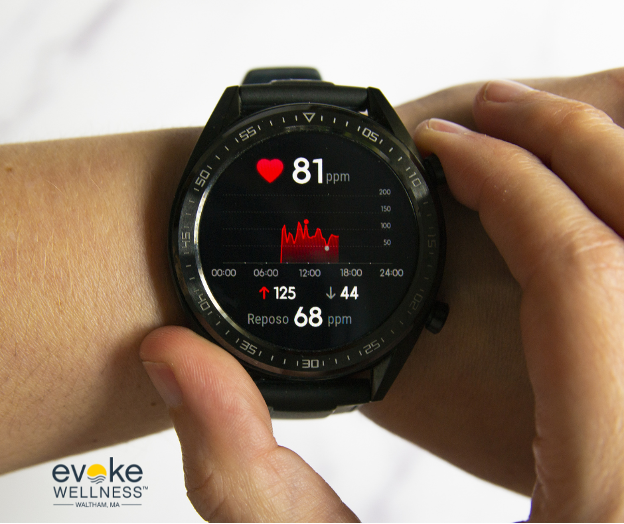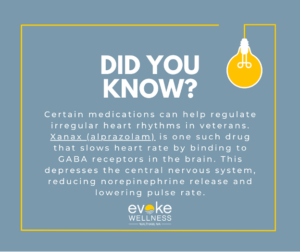As a medical professional, you know that certain medications can slow heart rate, which impacts patient health in various ways. In this article, we will explore some of the most common drug types that cause bradycardia and examine their effects. With heart disease being a leading cause of death, it is critical to understand how these drugs influence cardiac function, especially in vulnerable populations like the elderly. We will review recent studies and statistics on medications frequently prescribed for conditions like hypertension that often have bradycardia as a side effect. Knowledge in this area empowers you to make informed choices about treatment options to optimize patient wellbeing. Whether you work with veterans, those in recovery, or other groups, this discussion aims to increase your awareness of how drugs that slow heart rate can help or potentially harm those under your care.
Together, let’s embrace the journey to recovery and the promise of a new beginning. Call us at (833) 287-7223 today or reach out online.
Overview of Drug Types That Slow Heart Rate
Benzodiazepines for Anxiety
Benzodiazepines like Xanax (Alprazolam) are commonly prescribed to treat anxiety and panic disorders. They work by binding to GABA receptors in the brain, slowing down nerve activity and lowering heart rate. However, combining them with other depressants like alcohol or opioids can dangerously slow heart rate further, potentially causing an overdose.
Opioid Addiction Treatment
Suboxone contains buprenorphine, a partial opioid agonist that helps manage withdrawal symptoms like rapid heart rate during detox from opioid addiction. As a maintenance medication, it can prevent cravings and block the effects of other opioids without directly stimulating the opioid receptors that slow breathing and heart rate.
The key with drug types that impact heart rate is using them only as prescribed under medical supervision. Abusing substances can have serious cardiovascular effects in addition to risks of addiction and overdose.
Beta Blockers to Slow Your Heart Rate
Beta blockers are medications that work by blocking the effects of the hormone epinephrine, also known as adrenaline. This slows your heart rate, lowers blood pressure, and helps relieve stress on the heart.
How They Work
Beta blockers block the stimulating effects of certain natural chemicals like adrenaline on the heart and blood vessels. This prevents adrenaline from binding to beta receptors, which slows the heart rate. Lower heart rates reduce the force with which blood pumps from the heart.
Common Uses
These drugs treat conditions like high blood pressure, angina (chest pain), heart failure, migraines, and abnormal heart rhythms. Beta blockers may also help control heart rate during exercise, anxiety, or stressful situations.
Side Effects
Potential side effects include fatigue, dizziness, cold hands and feet, shortness of breath, and low blood pressure. Some beta blockers are “cardioselective” meaning they target the heart more specifically to reduce certain side effects.
Calcium Channel Blockers to Slow Your Heart Rate
How They Work
Calcium channel blockers, also known as calcium antagonists, are medications that dilate blood vessels and reduce heart rate. They work by blocking calcium from entering the muscle cells of the heart and blood vessel walls.
This inhibits the normal contraction of the heart muscle, reducing the force and rate of heart contractions. Some commonly prescribed calcium channel blockers include amlodipine, diltiazem, and verapamil.
Potential Benefits
By slowing the heart rate, these drugs can help manage conditions like angina, hypertension, and certain arrhythmias. Lower heart rates put less strain on the cardiovascular system.
Research indicates calcium channel blockers may also help prevent migraine headaches. Their blood vessel dilating effects increase blood flow to the brain.
Considerations
While generally well-tolerated, side effects can include dizziness, fatigue, swollen ankles, and constipation. They may worsen certain arrhythmias or heart failure in some patients.
Proper dosing is crucial, as too high of a dose can severely lower blood pressure and heart rate. Always take as prescribed and discuss side effects with your doctor.
Digoxin (Digox, Lanoxin) to Control Heart Rate
Digoxin is a medication used to treat various heart conditions, including atrial fibrillation and heart failure. It works by increasing the force of heart muscle contractions and slowing the heart rate. This drug is particularly useful for controlling a rapid heart rate, a condition known as tachycardia.
How It Works
Digoxin belongs to a class of drugs called cardiac glycosides. It acts by inhibiting the sodium-potassium ATPase pump in the heart muscle cells. This action increases the concentration of calcium ions within the cells, leading to stronger and more coordinated contractions of the heart muscle.
Indications and Use
Digoxin is typically prescribed for patients with:
- Atrial fibrillation (irregular heartbeat)
- Heart failure (weakened heart muscle)
- Certain types of abnormal heart rhythms
It is often used in combination with other medications to manage these conditions effectively.
Monitoring and Precautions
Regular blood tests are necessary to monitor digoxin levels, as the drug has a narrow therapeutic range. Too high a dose can lead to toxicity, while too low a dose may not provide the desired effects. Close monitoring by a healthcare provider is essential for safe and effective use of this medication.
Medications for Veterans With Irregular Heart Rhythms
Managing Side Effects
While helpful for arrhythmias, Xanax comes with risks if misused or combined with other depressants like alcohol or opioids. This can dangerously slow heart function. Careful medical supervision is required, especially when tapering off after developing physical dependence.
Alternative Treatments
Beyond benzodiazepines, other drug classes may benefit veterans with arrhythmia. Calcium channel blockers and beta blockers are common prescriptions that regulate heart rhythm. Non-drug therapies like ablation or cardioversion may also be recommended based on the arrhythmia type and severity.
Medication-Assisted Treatment Programs for Heart Health
Cardiovascular Benefits
Certain medications prescribed for addiction treatment have been found to offer cardiovascular benefits. Alprazolam (Xanax), a benzodiazepine used for anxiety disorders, can naturally lower heart rate and blood pressure by binding to GABA receptors in the brain. Studies indicate its usage may reduce risks of major cardiovascular events and mortality.
Safe Detoxification
Alcohol withdrawal syndrome poses serious dangers like seizures and heart issues during detox. Medication-assisted treatment provides a safer way to manage withdrawal symptoms through medication tapering under medical supervision. This reduces stress on the cardiovascular system compared to abrupt cessation.
Relapse Prevention
Medications like naltrexone and acamprosate help suppress cravings and prevent relapse in alcohol addiction treatment. By supporting sustained sobriety, the risks of alcohol-induced cardiomyopathy, arrhythmias and other heart conditions are reduced.
Comprehensive Care
The medication-assisted treatment program at Evoke Wellness combines FDA-approved medications with counseling and behavioral therapies for a holistic approach. This integrated care model optimizes outcomes by addressing the root causes alongside medical management.
Drug Types That Slow Heart Rate: FAQs
What drugs slow heart rate?
Benzodiazepines like Xanax are sedative medications that can slow down heart rate by reducing nerve activity in the brain. They bind to GABA receptors, producing a calming effect that lowers blood pressure and pulse. However, combining benzodiazepines with other depressants like alcohol or opioids increases overdose risks.
Why is the heart rate lowered during detox?
During alcohol or drug withdrawal, the body experiences surges in stress chemicals like norepinephrine, leading to elevated heart rate. Benzodiazepines help reverse these effects by slowing nerve impulses and stabilizing heart function during medical detox.
What addiction treatments address drugs impacting heart rate?
Evoke Wellness offers specialized programs for substance abuse issues involving drugs that impact heart rate, such as their opioid addiction treatment. Their holistic therapies like meditation also promote relaxation to lower the pulse. Reach out for personalized care addressing cardiovascular effects.
Conclusion
As we have explored, certain medications that slow heart rate can provide benefits, but also carry risks. When prescribed and monitored appropriately by a doctor, these drugs may improve quality of life for some patients. However, side effects like fatigue and dizziness highlight the importance of balancing potential benefits and harms. Moving forward, continuing research on optimal dosing and new drugs with fewer side effects can further our understanding. In the meantime, open communication with your physician about goals, preferences, and any changes in health status allows personalized decisions about using these medications. With thoughtful conversations and a shared commitment to patient wellbeing, providers and patients can collaborate to determine if a heart rate-slowing drug is the right choice.
Begin Your Journey with Evoke Wellness at Waltham
If you or a loved one is considering outpatient treatment, Evoke Wellness at Waltham invites you to contact us. Our compassionate team is ready to answer your questions, discuss your needs, and help you take the first steps toward recovery. At Evoke Wellness, you will find more than just a treatment program – you’ll discover a community dedicated to your wellness and success. Together, let’s embrace the journey to recovery and the promise of a new beginning. Call us at (833) 287-7223 today or reach out online.



